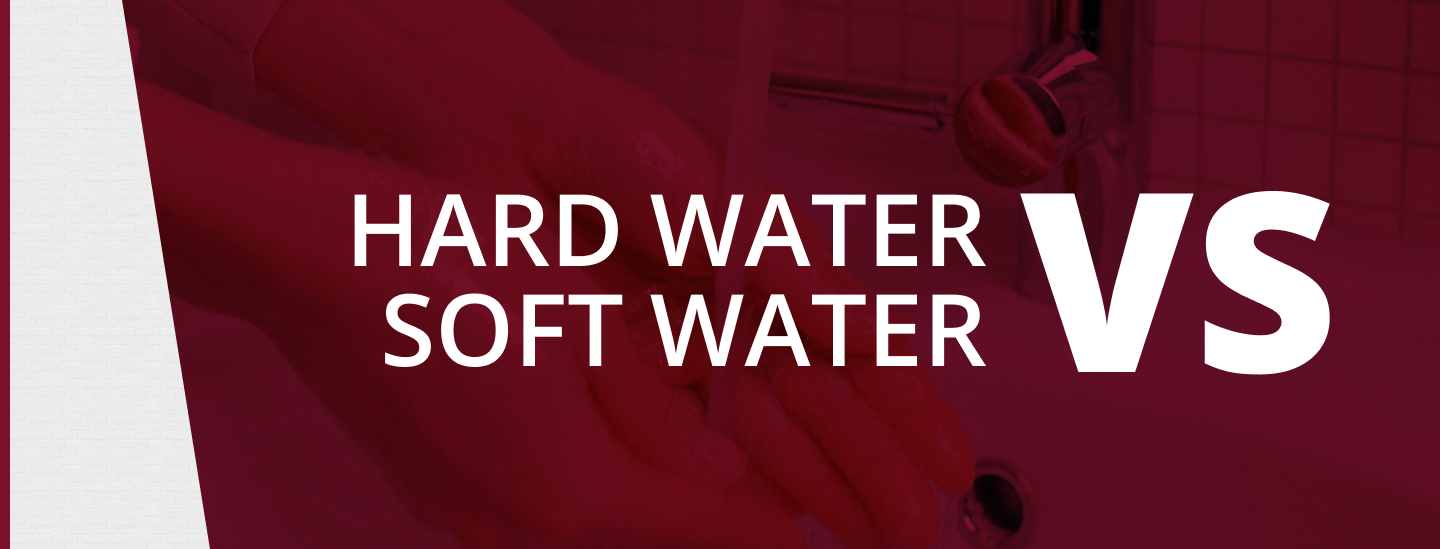Water is a necessity in every household. So, it’s imperative to have a healthy water supply for you and your family. Now, you’ve probably heard these two terms over and over again: hard water and soft water. You may be asking yourself: what exactly do these terms mean?
Thus, this blog will look into the differences between hard water and soft water, their pros and cons, and what you need to know about water softeners.
Hard Water
When people say hard water, the water contains a substantial quantity of dissolved harmless minerals, mainly calcium and magnesium. The two minerals give the water its hardness, a build-up on the surface that comes in contact with water.
Hard water can produce a white film. The residue of hardness and other minerals in the water occurs when the water is heated and evaporates. The minerals leave a white coating on items such as showerheads, glasses, and coffee pots.
Water is considered hard when it measures more than 12 parts per million or 7.0 grains per gallon. The hardness depends on which source your water supply.
Hard Water: the Pros and Cons
One misconception about hard water is that it is not safe. This simply is not the case as water’s hardness doesn’t affect its safety, but hard water does have some disadvantages.
Suppose you ever had dingy-looking clothes after laundry or dishes with spots and residue. In this scenario, hard water is usually to blame. This is because soap is less effective due to its reaction to the magnesium and calcium that lather is not as rich and bubbly as it should be.
If you wash your hair with hot water, you’ll notice that your hair may feel sticky and look dull. Hard water takes up more energy, causing you to pay more when your electricity bill arrives.
On the lighter side, hard water is sometimes preferred as drinking water by some people, since it has health benefits, and it has flavor.
Soft Water
When water is treated using water softeners, you have what is called soft water. Water is naturally soft as the rainwater falls. Eventually, it turns into hard water when it falls on the ground and starts to pick up minerals.
Unlike hard water, softened water satisfies more customers. One reason is that soft water allows the soap to sud easily. You can also expect no build-up scale in boilers and water heaters. Plumbers don’t have to deal with large mineral deposits found on plumbing fixtures, glass shower/tub doors, and cooking utensils.
Soft Water Has No Minerals
Soft water is not recommended as drinking water because it doesn’t taste good and contains salt, not recommended for individuals on a sodium-restricted diet. The softening process removes all the minerals in the water, which causes an increase in sodium content.
Tips to Keep Your Water Softeners Working
There’s no perfect water softener; hence, you may run into some unavoidable issues. That’s why we recommend doing the following:
Regular maintenance plays an essential role in ensuring your unit performs appropriately. We recommend you to do routine maintenance for better performance.
There are two factors in why your water softener is in poor working condition. Lower pressure in the house is one of them. To solve this, you can temporarily bypass your unit to restore normal pressure until the water softener works. Another reason is the water quality. So if the water softener is not in use, you should take it out of service and have it bypassed to prevent taste and odor problems.
Remember that salt is used during the softening exchange, which can be destructive to the home plumbing system.
When the water softener timer becomes stuck in the regeneration cycle, it dumps water down the drain, and as a result water usage and operation costs increase.
Connect with our partners today
Soft water has more advantages over hard water that’s why many households prefer the former. That’s why you must have a water softener in your home if you want your water treated well.
Kenmore offers high-efficiency water softeners that help prevent large particles of sediment from entering your plumbing. To learn more about their units, visit their site for details.
Our plumbers at SPS Plumbing can also advise and provide necessary fixes for your softener to work efficiently. For any plumbing-related questions, call us at 408-622-8183 (South Bay Area) or 209-597-9107 (Central Valley) to book an appointment today!

